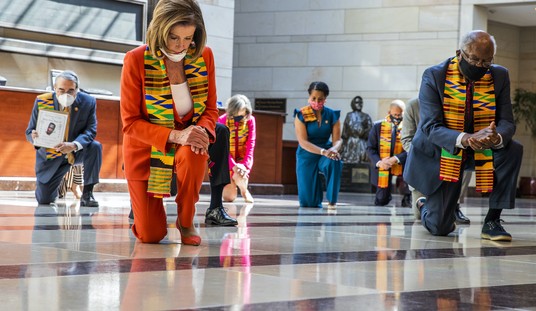Reuters reports that Russian armored units have begun pulling back into South Ossetia, indicating a general withdrawal from Georgia. Moscow pledged that it would return to the lines status quo ante by Friday night, roughly 24 hours from now. Georgian officials remain skeptical:
Russia began pulling tanks and armor back over its frontier, pledging all forces would quit Georgia’s heartland by Friday night, but Tbilisi said Moscow was determined to keep a grip on the country.
The West has been waiting with increasing impatience for signs of a full-scale pullout of troops and armor that Russia sent into its small Caucasus neighbor two weeks ago. Continued delays have raised fears of a drift back into conflict.
“I can see 21 T-72 tanks moving towards the Roki tunnel in the direction of Russia,” said a Reuters reporter at the tunnel, which is a few km (miles) from the Georgian-Russian border and is the main access route for Russian forces.
“I can also see four Grad artillery launchers, several armored personnel carriers, and heavy trucks ready to move into the tunnel,” the reporter said. Outside the Russian city of Vladikavkaz, near the border, engineers were building tent camps, possibly to accommodate withdrawing troops.
Meanwhile in Gori, nothing much has changed, according to eyewitnesses. The Finnish Foreign Minister, Alexander Stubb, reported that the Russians haven’t budged in the key strategic city. He also reports that Russia has conducted an ethnic cleansing of South Ossetia, forcing ethnic Georgians out of their homes and into Gori, where Russian special forces have dumped them.
Russia has also demarcated a “buffer zone” in which they will control traffic along a key highway vital to Georgia’s economy, fully within Georgian territory. They have begun building checkpoints, which will interfere with movement of goods within Georgia and weaken the nation. Russia admits this and says the cease-fire allows it, which Georgian president Mikheil Saakashvili strongly rejects.
The US will involve itself heavily in rebuilding Georgia’s military, according to the American commander of operations for NATO in Europe. General John Craddock expects the Pentago to start that process soon, although he remained vague on the speed and amount of support Tbilisi could expect. That sends a strong signal that the US and the West have not ceded hegemony to Russia in Georgia or other areas of the Caucasus outside of Russia’s own territory. It keeps open the option to offer NATO membership to Georgia and defy Vladimir Putin’s new imperialism in Asia.
By tomorrow, we should see whether the Russians pull back from Tbilisi and honor the cease-fire agreement. Based on their actions thus far, I’d remain skeptical of their intentions in even this modest measure.








Join the conversation as a VIP Member